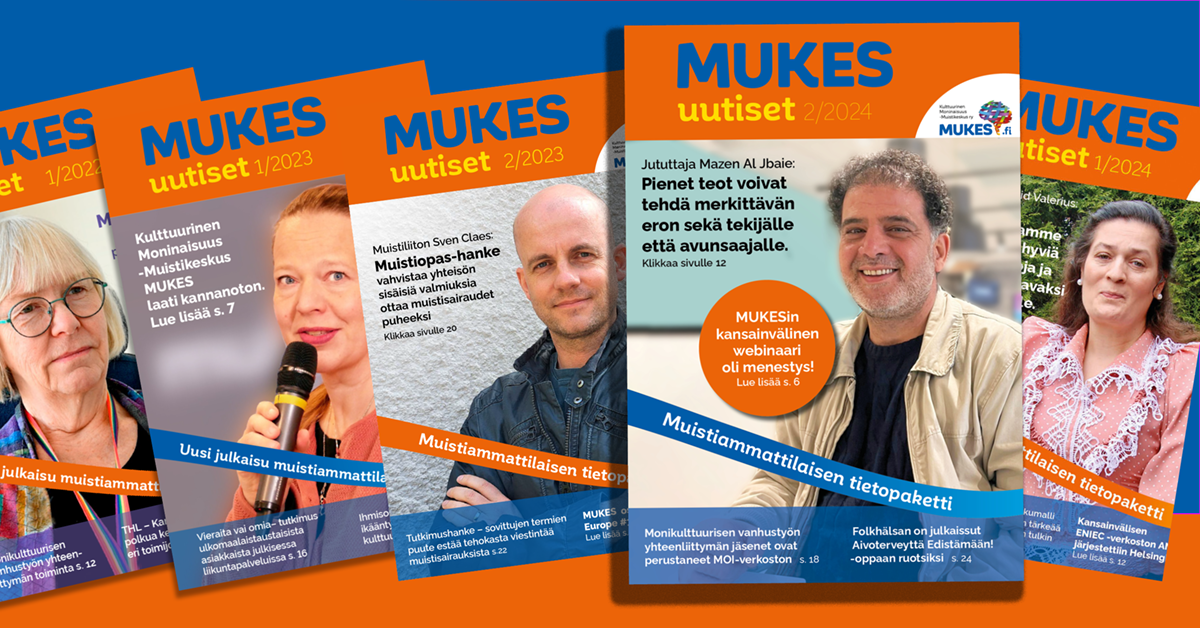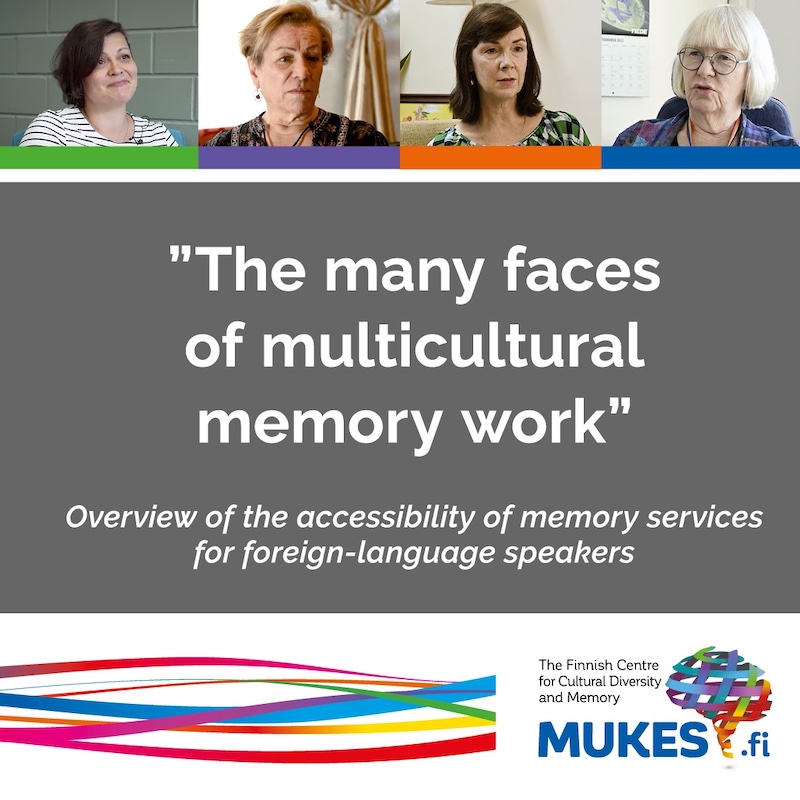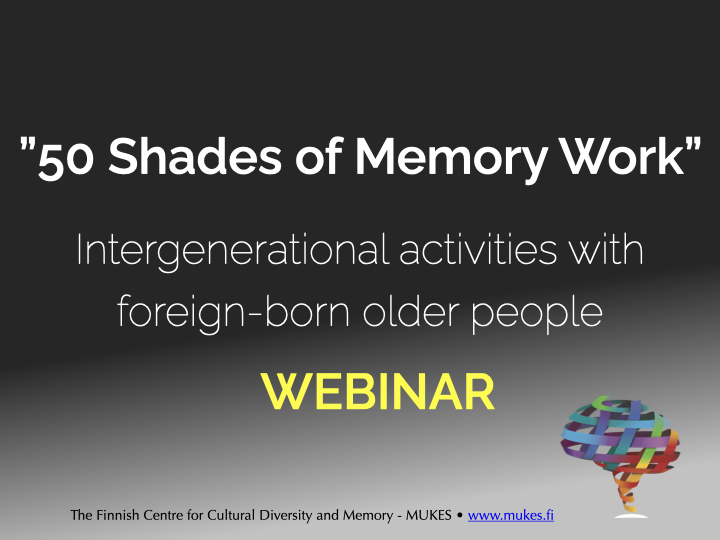About MUKES

The Finnish Centre for Cultural Diversity and Memory aims to ensure that people from ethnic minority backgrounds with dementia get a timely and accurate diagnosis.
The Finnish Centre for Cultural Diversity and Memory - MUKES supports social- and healthcare professionals and students by raising awareness of cultural sensitive memory work. We also raise the awareness of the elderly from ethnic minorities, about brain health, memory disorders, and dementia. Our primary goal and focus are to continue to support the elderly from different language and cultural minorities and create a memory center that best suits their needs.
MUKES points out that the customer's background, language, culture, or health literacy should not be an obstacle to getting a memory test or to the timely diagnosis of a memory disorder. In a just society, all members should have equal access to health care – this also applies to the prevention, assessment, diagnosis, and treatment of memory disorders.
Currently, memory services do not serve minority groups with the efficiency, that would be appropriate in identifying and treating memory disorders. MUKES emphasizes that the planning and development of suitable memory services for the elderly, belonging to different linguistic and cultural minorities requires.
Strategy for the development of national culture-sensitive memory work training for professionals to work with linguistic and cultural minorities with dementia. The development of tools for timely memory disease diagnostics closer cooperation between national services and the third sector to implement the services.
Contact us: The Finnish Centre for Cultural Diversity and Memory, MUKES +358 400 250 404 siiri.jaakson@mukes.fi www.mukes.fi



MUKES-news magazine
The Finnish Centre for Cultural Diversity and Memory - MUKES has developed a platform for presenting multicultural memory work in Finland and elsewhere - The MUKES-news
This new digital magazine is an information package intended for professionals in the field of elderly migrants and memory work with ethnic minorities.

Cultural-sensitive Memory Work in Finland
Memory disorders do not care about language groups and it comes equally to everyone. That means that there are a lot of foreign-language speakers, living with mild cognitive impairment and with progressive memory disorders.


